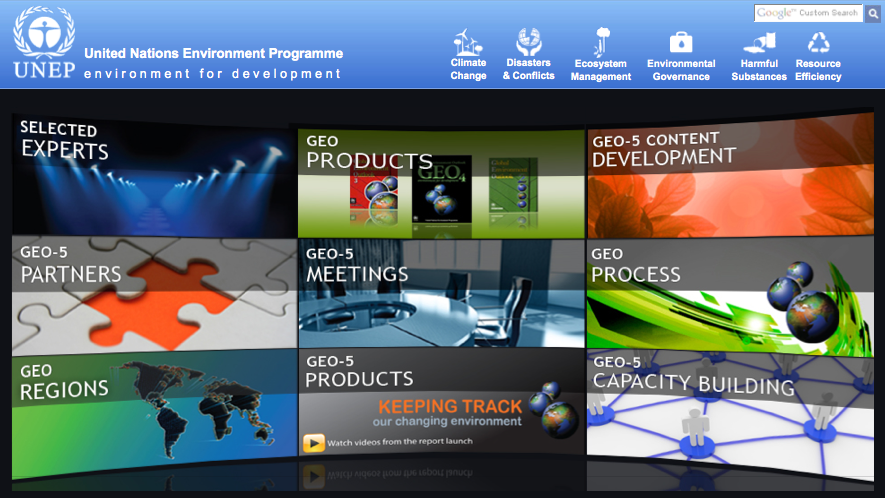The Intergovernmental Meeting on the GEO-5 Summary for Policy Makers concluded in Gwangju, Republic of Korea after three days of deliberation.
Delegates identified policy responses in seven areas: environmental governance; energy; chemicals and waste; land; climate change; biodiversity; and water resources and sanitation.
 31 January 2012: The Intergovernmental Meeting on the Fifth Global Environmental Outlook (GEO-5) Summary for Policy Makers (SPM) concluded after three days of delibaration. The GEO-5 SPM highlights a number on innovative responses that are required to meet internationally agreed goals in areas such as biodiversity, sustainable development and climate change.
31 January 2012: The Intergovernmental Meeting on the Fifth Global Environmental Outlook (GEO-5) Summary for Policy Makers (SPM) concluded after three days of delibaration. The GEO-5 SPM highlights a number on innovative responses that are required to meet internationally agreed goals in areas such as biodiversity, sustainable development and climate change.
Delegates from 62 countries, 14 experts and two observers gathered at the Intergovernmental GEO-5 SPM, from 29-31 January 2012, in Gwangju, Republic of Korea. Participants reviewed the key messages from the GEO-5 report, which is due to be finalized and released sometime during 2012. Discussions covered: the impacts of passing the earth’s critical thresholds; the need for credible data; the partial achievement of internationally agreed goals; the need to shift policies’ focus; scaling up successful regional policies and practices; and the innovative responses and cooperation needed to overcome these hurdles.
With the focus of GEO-5 shifting towards highlighting responses to overcome the challenges faced and goals set, delegates identified policy responses in seven areas: environmental governance; energy; chemicals and waste; land; climate change; biodiversity; and water resources and sanitation. Identified policy interventions included the establishment of transboundary biodiversity corridors, policies for ensuring the conservation and sustainable use of wetlands, increases in energy efficiency measures, removal of peverse incentives such as subsidies, controlling the inappropriate export and import of hazardous wastes, and access to environmental justice.
Delegates agreed on a number of innovative responses that would assist in achieving internationally agreed goals, as well as assist in scaling up regional policy responses, including monitoring environmental goals in the context of sustainable development goal-setting, enhancing the effectiveness of global institutions, and the need for consistent data collection and assessment. They were also reminded that cooperation is needed to achieve many of these goals. [IISD RS Coverage] [GEO-5 web site] [Meeting documents]